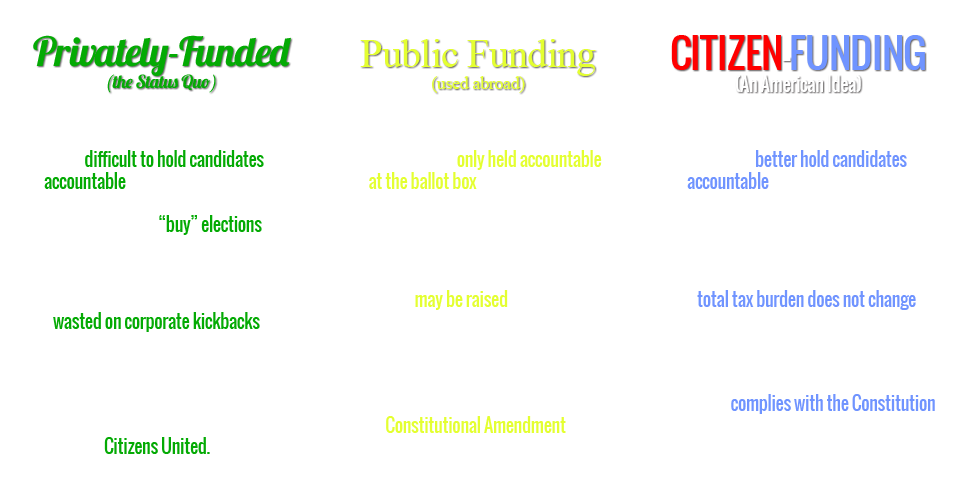What are
"Citizen-Funded"
Elections?
And how do they differ from both
publicly-funded elections and the status-quo of privately-funded elections?

In a Citizen-funded Election
- Each taxpayer gets a voucher - around $50 or $100 - each year, which they can allocate to:
- Any candidate who has opted-in to the citizen-funded system
- Any Political Party Committee
- Any Political Action Committee (PACs)
-
Or to the administration of elections
(the "none of the above" option)
In a Citizen-funded Election
- Candidates have the choice of opting-in to citizen funding.
- If they do so, they get all the funds allocated to them from citizen vouchers, but they cannot take any other donations other than donations of $100 or less from individuals.
- Candidates also have the choice of opting-out of citizen funding
- If they do so, they will not get any funds and must raise private funds as they do now - the status quo.
In a Citizen-funded Election
- No citizen is prohibited from making donations to support any or all political speech.
- Citizens' tax dollars never go to speech they do not support.
- The system is optional for candidates, not mandatory.
This means Citizen-Funded Elections
Meet every Constitutional Criteria
Laid Down by the Supreme Court
And can be passed into law without constitutional amendment
Why is this important?
Most elections, including 95% of U.S. Congressional elections, are won by the candidate who spent the most money.
Right now, our elections are funded by only 0.05% of the people, "the Funders."
With money very important in political elections
it creates a "conflict of interests" and a "misaligned incentive"
for politicians to serve
"the Funders" instead of "the People."
With Citizen-funded Elections
We re-align the incentive to serve the funders
with the duty to serve the people
by making "the funders" "the people."
Representatives spend
less time raising money
and more time researching, discussing, and legislating law.
Politicians no longer have to keep the funders happy by opposing the public interest.
And it means that reform that is important to both the Left and the Right will no longer be blocked by powerful moneyed interests.
A Comparison (page 1 of 2)

A COMPARISON (Page 2 of 2)

This Slideshow Prepared by:

